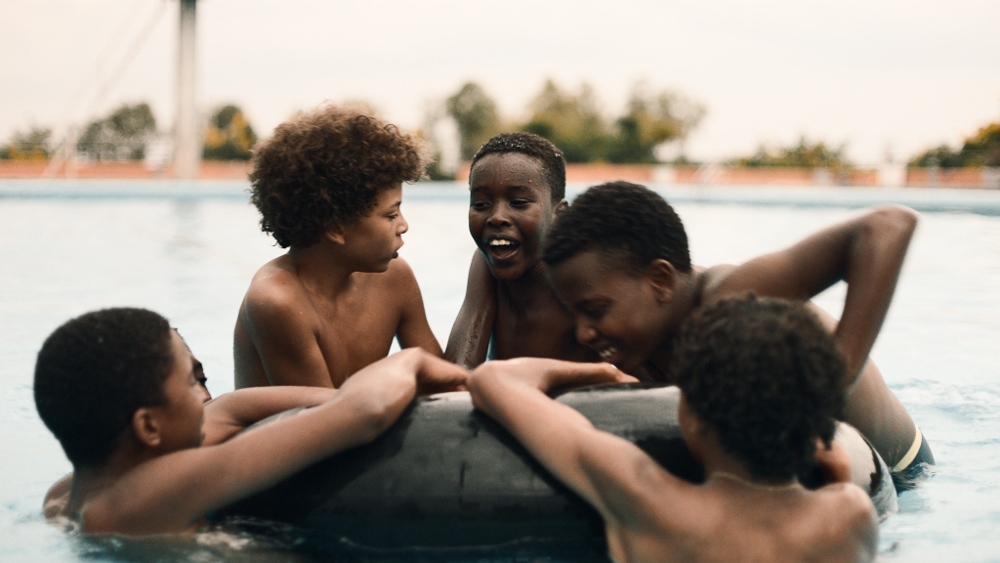
The devastating impact of war is depicted through the experiences of a 10-year-old boy in Petit Pays (Small Country: An African Childhood), directed by Éric Barbier. The film is based on the novel by the same name by Gaël Faye, which in turn is inspired by the French-Rwandan rapper’s own childhood, growing up in Burundi. Although neither Faye’s novel nor the film is strict documentation, but rather a narrative inspired by true events, the film’s strength is in its fidelity to the perspective of its young protagonist Gaby. As he observes the changes in the world around him, the viewer sees it too, with Gaby, and when the storm of violence touches him, changing his life forever, I believe the viewer too, will emerge changed from watching the film.
The landscape of Gaby’s childhood is one immersed in the lush beauty of nature, the pleasures and gentle mischief of days spent with friends, the warmth of family. Set in Bujumbura, the capital of Burundi, in the early 1990s, the images, sounds and scents of Gaby’s childhood may not be familiar to those of us from other countries (the film was shot in Rwanda), but the feelings they evoke are universal. Gabriel, or Gaby as he is known to friends (Dijibril Vancoppenolle) leads a comfortable life with his French father Michel (Jean-Paul Rouve) and Rwandan mother Yvonne (Isabelle Kabano) and little sister Ana (Deyla de Medina). Their home is spacious, Michel has several people working for him, and there is a domestic worker always ready to make treats in the kitchen, leaving Gaby plenty of time to hang out with his friends, stealing mangoes from a neighbor’s tree, playing in an abandoned Volkswagen van, and thinking up names for their band. Life is not without its worries, and the tension between Gaby’s parents is palpable from the outset, as Gaby hovers at a distance, listening in. Talking to her friends, Yvonne makes the difficulties of the marriage very clear: “And the kids, he sees them as half-black, half-white. It’s just not possible that parents don’t see their children as being the same color.” Yet although his parents separate, and Gaby does have to contend with the issues surrounding multiple ethnicities, and cultural identity, the challenges looming ahead are far graver.
As Burundi edges closer to its first democratic presidential election in the Summer of 1993, the tensions between the Hutu and Tutsi ethnic groups in Rwanda are felt in Burundi as well. For Gaby’s family, with close relatives in Rwanda, the concerns are urgent from the beginning, growing more ominous as the tide of violence rushes on. What begins as the kind of schoolyard teasing that is often shrugged off – making distinctions between the Hutu nose and Tutsi nose – is a foreshadowing of what is to come, as these ethnic distinctions and alliances literally become a matter of life and death.
The film’s focus on the joys of carefree moments, the natural beauty of the country, swimming in the river, eating pancakes for breakfast, celebrating with family, and laughing with friends – allow the viewer to connect intimately with Gaby’s experiences, and as the political and ethnic conflicts tear the country apart, and the violence comes ever closer, one feels them too. This is what war does to a child’s life; even those who survive are marked forever.
The French Film Festival will take place with onsite screenings at the cinematheques in Jerusalem, Haifa, Holon, and Rosh Pina. The Tel Aviv Cinematheque will open tomorrow, May 22, 2021, and a screening of Petit Pays is scheduled at 16:30. Tickets are available online from the Tel Aviv Cinematheque: https://www.cinema.co.il/en/
Petit Pays (Small Country: An African Childhood)
France/Belgium, 2020, 1 hr 51 min, French, Kurundi, Swahili, with Hebrew subtitles
Directed by Éric Barbier; Written and adapted by Éric Barbier; based on the novel by Gaël Faye; Editor: Jennifer Augé; Cinematography: Antoine Sanier; Music: Renaud Barbier





